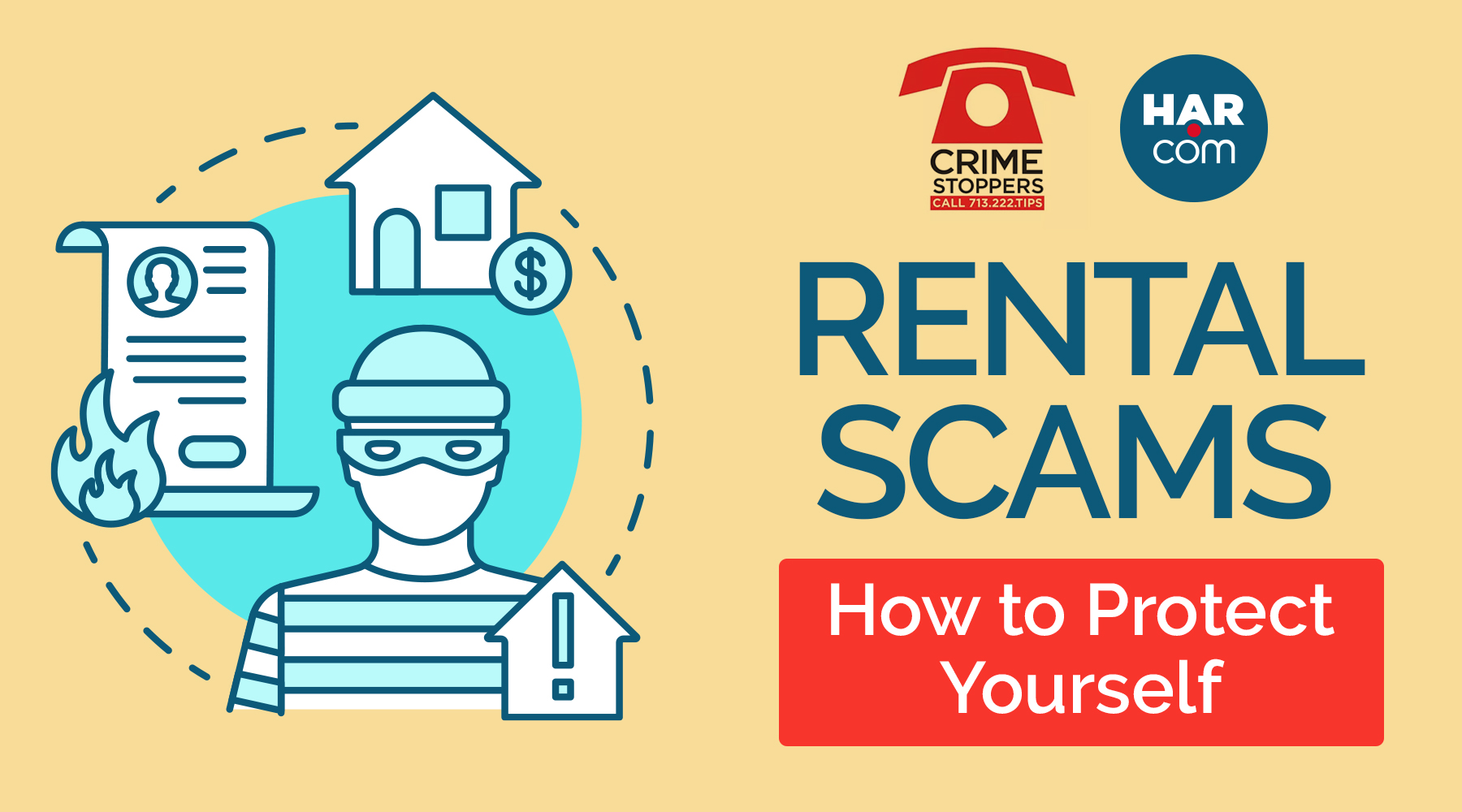With the tight housing market and rising rental costs, scammers are taking notice. It’s important to protect yourself when looking for a rental property.
Investigate Listings
Go to a local real estate website like HAR.com to make sure the property you are seeing online is legitimate. You can also do a quick online search for the listing and the owner’s email address and phone number. If you find the same property listed in other cities, that’s a big red flag.
Confirm Listing Agent’s Credentials
Check the listing agent’s credentials online with the Texas Real Estate Commission or Houston Association of REALTORS®.
See The Property In Person
Do not send money to someone you’ve never met for a property you have not seen in person. If you cannot visit the property in person, ask someone you trust to check it out. If a landlord refuses to meet you or show the listing through anything other than photos, then it is likely a scam.
Do Not Pay Large Sum of Money Upfront
The most common rental scam involves asking you to pay a large sum of money upfront before even meeting you in person or showing you the listing. Application fees are normal in the renting process, but it is not normal for a landlord to ask for a security deposit or first month’s rent before you sign a lease. Also, do not wire transfer money. Usually, legitimate property owners will ask for a cashier’s check made payable to a certain individual and/or a brokerage company.
Rent Appears Too Low
It is rare for properties to be priced at a significantly lower rental rate compared to similar properties. Check the market rental rates in the area. Like the old saying goes, “if it seems too good to be true, then it probably is.”
Reporting A Scam
If you find yourself the target of a rental scam, report it to local law enforcement and give them the details. You can also report the scam to the Federal Trade Commission (FTC) by filing a complaint on its website or call the FTC’s toll-free hotline: 1-877-FTC-HELP (1-877-382-4357).
Rental Scams Important Links


